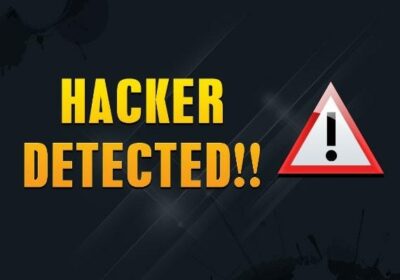In the early days of computing, the word ‘hacker for hire‘ often conjured up images of rogue individuals lurking in the shadows, infiltrating systems, and causing havoc. But fast forward to the 21st century, and the perception of hackers has undergone a massive transformation. Enter the world of the modern hacker: the ethical hacker.
Ethical Hacking Defined
Ethical hacking, often termed as penetration testing or white-hat hacking, involves the same techniques, tools, and processes that hackers use, but with one major difference: ethical hackers have permission to break into the systems they test. Their purpose is to discover vulnerabilities from a malicious hacker’s viewpoint to better secure systems.
Why Ethical Hacking?
As the digital era evolves, the frequency and severity of cyber-attacks have skyrocketed. Companies, governments, and organizations realized that one of the most effective ways to find and fix security vulnerabilities is by thinking and acting like a hacker—a modern, ethical hacker, that is.
Ethical hackers use their skills to help, not harm. They provide a crucial service by discovering vulnerabilities before malicious hackers can exploit them. Their role in cybersecurity has become indispensable.
The Modern Hacker’s Toolkit
The tools of modern ethical hackers are diverse, ranging from automated vulnerability scanners to sophisticated penetration tools. Popular tools include Metasploit, Nmap, and Wireshark. But beyond the software, their best tool is their mindset: a unique blend of curiosity, persistence, and technical acumen that enables them to uncover vulnerabilities that others might overlook.
Ethics and Legality
It’s worth noting that the line between ethical hacking and malicious hacking can be razor-thin. Ethical hackers must follow certain guidelines:
- Permission: Ethical hackers must have explicit permission to probe and test systems.
- Respect Client’s Interests: Information uncovered during testing is confidential and should only be shared with authorized personnel.
- Report Findings: All vulnerabilities discovered must be reported to the organization.
- Do No Harm: The intention is to discover vulnerabilities, not to exploit them to the organization’s detriment.
In many countries, unauthorized hacking, even with good intentions, can lead to severe legal penalties. Ethical hackers often obtain certifications like Certified Ethical Hacker (CEH) to validate their skills and commitment to their profession’s ethical standards.
Changing Perceptions
The role of ethical hackers in the 21st century is not just about the technical intricacies of cybersecurity. It’s also about education and changing perceptions. Many organizations now recognize that ethical hackers are not the enemy but are valuable allies in the fight against cyber threats.
In fact, the culture around hacking has shifted dramatically. Hackathons, once fringe events, are now mainstream, drawing hundreds of participants keen to showcase their skills, learn, and contribute to building more secure and robust systems.
Challenges and Opportunities
As the digital landscape continues to evolve, so do the challenges facing ethical hackers. The proliferation of Internet of Things (IoT) devices, the complexity of cloud architectures, and the sophistication of malicious hackers mean that ethical hackers need to be at the top of their game.
But with challenges come opportunities. The demand for ethical hackers has never been higher. Organizations are willing to pay premium salaries for skilled professionals who can help safeguard their assets. Beyond the corporate world, ethical hackers are also making significant contributions to open-source projects, further helping secure the digital landscape for all.
Conclusion
The modern hacker of the 21st century bears little resemblance to dated stereotypes. Ethical hacking, with its focus on protection and prevention, has moved from the shadows into the mainstream. As cyber threats continue to evolve, the role of ethical hackers will only grow in significance, making it a vibrant and essential field for those with the skills and passion to make a difference.




Ethical hacking is a critical component of modern cybersecurity. Ethical hackers use their skills to help organizations identify and fix security vulnerabilities before malicious actors can exploit them.
Ethical hackers use a variety of tools and techniques to test systems for security vulnerabilities. Popular tools include Metasploit, Nmap, and Wireshark.
Ethical hacking is a highly regulated field. Ethical hackers must obtain permission from the organization they are testing and follow strict ethical guidelines.
Ethical hackers play a vital role in protecting our digital infrastructure. The demand for ethical hackers is expected to grow significantly in the coming years.
Ethical hacking is a dynamic and evolving field, with new challenges emerging all the time. Ethical hackers need to be lifelong learners and stay up-to-date on the latest cybersecurity threats and trends.